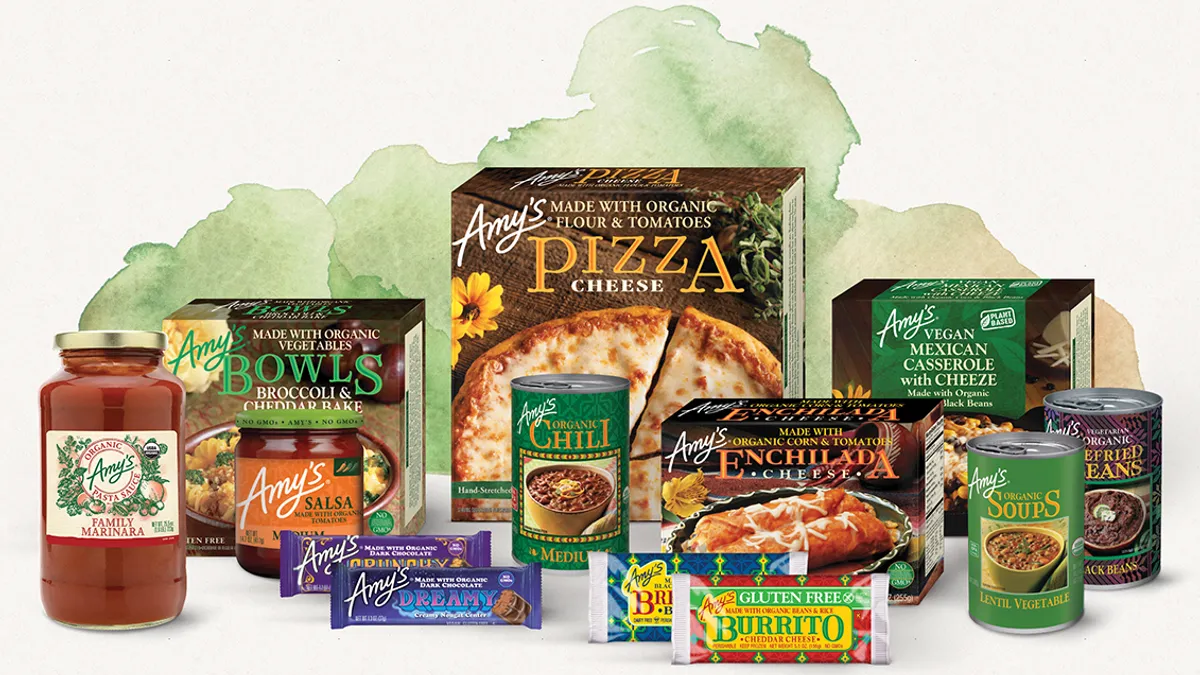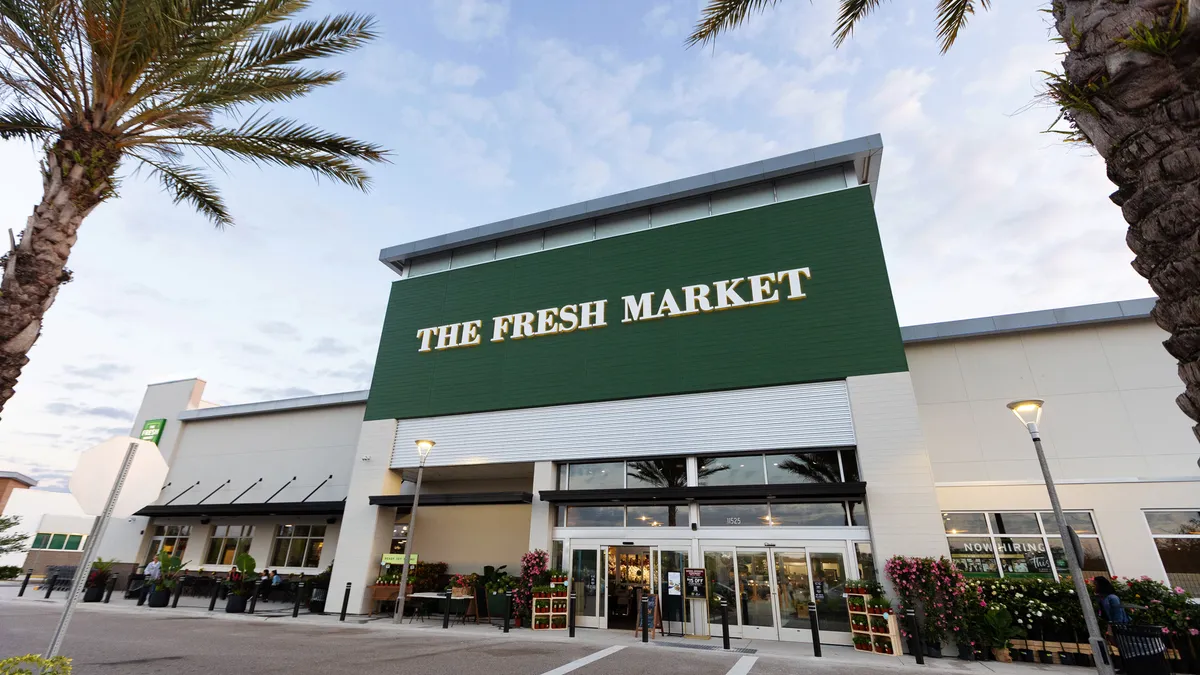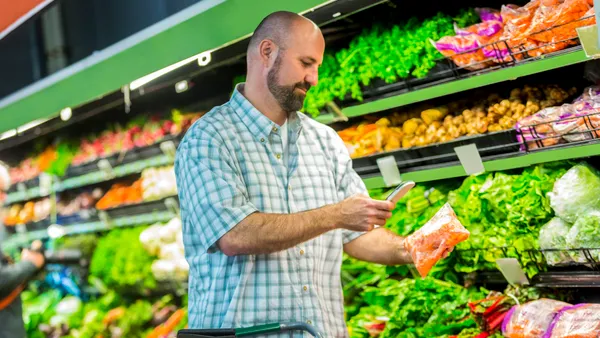Nothing underscores the importance of good health like a global pandemic. The last year has trained consumers' attention like never before on the vulnerability of their health—and how inextricably linked it is to their environment, including the foods they eat.
In response, shoppers are heading to local supermarkets and online grocery platforms with a new mission: to choose foods that help fortify their internal reserves against whatever threat may come next.
What's old is new again
"Eating with a focus on nutrition isn’t new," says Shelley Balanko, Ph.D., senior vice president for The Hartman Group. The food and beverage-focused consultancy has tracked health and wellness trends for more than 30 years, and in that time, "we've slowly witnessed an evolution of American culture toward one that broadly values health and wellness," she explains.
While COVID-19 may have helped consumers "solidify the connection between what they eat, how they feel and their ability to fight disease, the imperative to care about health and wellness—and to do something about it—will continue," Balanko adds.
An opportunity wrapped in a challenge
Grocers who guide shoppers to wellness-boosting foods stand to benefit. But first, they must understand what the consumer's search entails and which product mix best satisfies it.
The Hartman Group fielded a survey in April, in the midst of pandemic-related quarantining, that investigated how consumers connect health with diet. The results reflect both a snapshot in time and a more enduring attitudinal arc that's shaping how Americans eat.
"When we asked consumers about their concerns, 30% of the general population said they were more concerned about immunity at this time," Balanko says. "Of that 30%, 44% reported eating [healthier] in general. Folks are really focused now on immunity and on eating for wellness."
Whole-food functionality
While some consumers turn to functional foods fortified with antioxidants, minerals, probiotics and other popular better-for-you attributes, the survey also revealed a robust segment of shoppers who favor diets rich in what Balanko calls "inherently functional foods with targeted benefits."
Those with more advanced wellness knowledge tend to gravitate toward "fresh, real, less-processed" whole foods. "It's a trend we've witnessed, especially among the core [of shoppers committed to] health and wellness," she adds.
A simple definition
These findings resonate with Xavier Unkovic, President & CEO of Amy's Kitchen, a family-owned, organic food company that's been putting quality products on grocery shelves since 1987.
"Eating for wellness means the same thing to us as it does to our consumers and to a lot of people generally," Unkovic says. "These are foods that are made with care and purpose—and with whole ingredients you can pronounce. And we put vegetables, whole grains and legumes at the center."
This approach aligns with the values consumers shared in The Hartman Group’s survey: 41% of the functional food and beverage consumers polled said “natural” is a desired attribute in their product choices, 32% said they prefer to avoid artificial ingredients, and 19% said they specifically seek organic options.
Organic origins
"Organic ingredients have been a key part of Amy's approach for over 30 years," Unkovic says. Amy's buys roughly 100 million pounds of organic produce annually, and organic ingredients account for upwards of 90% of its products' formulations.
"By being committed to organic—and making it accessible—we like to think we’re giving consumers everywhere a chance to choose to eat well, which is more important now than ever," Unkovic says. "And we encourage our retail partners to increase that accessibility. Nutrient-rich, organic foods should be readily available. We need to see these products everywhere."
Take it easy
In a spring 2019 study, consumers of plant-based foods told The Hartman Group that convenience and cost play a big role in their purchase decisions.
"That's a cue for grocers to feature plant-based products in the fresh-prepared section of the store," Balanko says, as well as in the center aisles and freezer department—"a section that, because of the pandemic, a lot of consumers have revisited perhaps for the first time in a while." She adds, "They're finding a lot of compelling innovations there to explore and discover."
Something else consumers are looking for: more options.
"If you're going to sell frozen pizza, don't just stock a vegetarian option and call it a day," Unkovic says. "Carry a vegan one, too, and one that's dairy-free, gluten-free—pay attention to those special diets. You don't know how often we hear from consumers about how hard it is to find foods that meet their needs. A lot of our products are a response to that."
Food should be fun
Amy's catalog has more than 260 SKUs in 26 categories across the store—from the freezer to the candy aisle. All are organic and vegetarian. Many are plant-based and more than 120 are vegan.
The plant-based movement has migrated from the margins to the mainstream in just a few years. Domestic retail sales of plant-based foods rose 11.4%—compared to growth of 2.2% for food overall—in 2019, bringing the total plant-based market’s value to $5 billion, according to the Plant Based Foods Association.
That doesn't surprise Balanko. In the Hartman Group's plant-based survey, the dominant reasons consumers sought plant-based products were taste and discovery. "People are trying new things, and plant-based offerings are the new thing," she says. "But excellent taste is still paramount."
Amy's Kitchen embraces that philosophy. "One of the first questions we ask during recipe development is, 'What are we craving lately?'" Unkovic says. "That's why many of our products are like what you'd get at a restaurant—but straight from your freezer or pantry."
Unkovic points to Amy's new Organic Tortilla Soup as an example. "Our chef based the recipe on the classic Mexican tortilla soup standard, with sun-ripened tomatoes and corn masa. But we added bell peppers, black beans and fire-roasted sweet potatoes. It's really comforting."
The consumer is always right
"Comfort food is in high demand these days," Unkovic adds. "The great thing about making comforting foods from whole, organic ingredients is that eating mindfully can actually ease anxiety during stressful times."
Balanko agrees. "Even mainstream consumers are realizing that we can eat with more than just satiety and energy in mind," she says. "And they're realizing that how we eat every day can benefit everything from how we manage stress to cognitive health. Consumers are looking for that."
The shift toward plants, organics, special dietary needs and all-around mindful eating is here to stay. And when retailers help consumers get their fill, we all benefit.
Convenient, organic options from Amy's Kitchen give health-conscious consumers everything they're looking for, across all dayparts. From vegan and kosher to gluten-, dairy-, and soy-free, Amy's Kitchen has offerings to suit a variety of needs and preferences, and the flavor and quality that keeps shoppers coming back for more. To learn more about Amy's offerings, current trends and opportunities for category growth, visit tradeinsights.amys.com.










